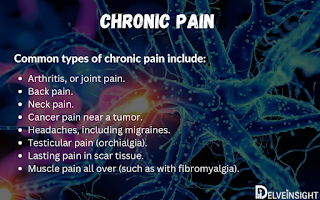Energy Drinks: Understanding Their Benefits and Hidden Health Risks
What Are Energy Drinks?
Energy drinks are beverages designed to boost energy levels, enhance mental alertness, and improve physical performance. Typically, these drinks contain caffeine, sugars, vitamins, and amino acids like taurine. Marketed as quick fixes for fatigue and productivity boosts, energy drinks have become immensely popular, particularly among young adults and students.
Effects of Energy Drinks
The primary ingredient in energy drinks is caffeine, which can enhance alertness and concentration temporarily. However, the high caffeine content can also lead to side effects such as hypertension, insomnia, and increased heart rate. Energy drinks often contain significant amounts of sugar, contributing to weight gain, obesity, and an elevated risk of type 2 diabetes. Prolonged consumption can exacerbate these issues and lead to potential long-term health consequences.
The Debate: Are Energy Drinks Safe?
The safety of energy drinks is a subject of ongoing debate. While they can provide a temporary boost, the potential health risks cannot be overlooked. Health experts argue that excessive consumption can result in severe health problems, including cardiovascular issues, anxiety, and digestive disturbances. Moreover, the interaction of energy drinks with alcohol can mask intoxication, leading to dangerous drinking behavior. The overall consensus is that moderation is key, and consumers should be cautious of the potential risks.
Energy Drinks: Market Trends and Dynamics
The global energy drinks market has seen significant growth, driven by increasing consumer demand for quick energy boosts and the expanding range of flavors and formulations. The market is expected to continue its upward trajectory, with a forecasted compound annual growth rate (CAGR) of around 7% over the next decade. Key trends include the rise of sugar-free and natural energy drink options, reflecting a shift towards healthier alternatives.
Key Companies Working in Energy Drinks Market
Several notable companies in the energy drinks sector include PepsiCo, Inc., Suntory Beverage & Food Europe, T.C. Pharmaceutical Industries Company Limited, Taisho Pharmaceutical Holdings Co., Ltd., Lucozade Ribena Suntory Limited, Coca-Cola HBC, Amway Corp., Alliance Beverage Distributing, 5-hour Energy, XYIENCE Energy, Stokely-Van Camp, Inc., Carlsberg Breweries A/S, NEALKO ORAVAN, spol s.r.o., Mutalo Group, Asia Brewery Incorporated, Otsuka Pharmaceutical Co., Ltd., HELL ENERGY Magyarország Kft., Dali Foods Group Co., Ltd., among others.
These companies dominate the global energy drinks market through innovative product development and aggressive marketing strategies. Additionally, new entrants and niche brands are increasingly making their mark with unique formulations and health-conscious products.
The Future of Energy Drinks
The future of energy drinks will likely be shaped by growing health concerns and regulatory scrutiny. Companies are expected to focus on developing products with lower sugar content, natural ingredients, and enhanced nutritional profiles. As consumer preferences shift towards healthier lifestyles, the industry may see a rise in functional beverages that combine energy-boosting properties with health benefits.
In conclusion, while energy drinks offer a quick energy boost, their potential health hazards cannot be ignored. With the market evolving, both consumers and companies must navigate the balance between efficacy and safety.

.png)


Comments
Post a Comment